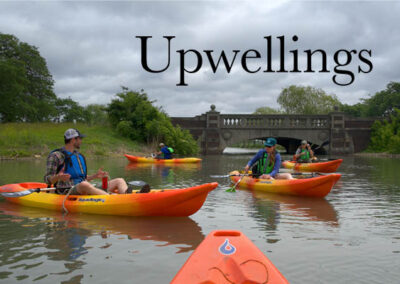
Teachers, are you looking for simple ways to introduce youth to Great Lakes topics and hands-on learning opportunities? Check out the free Great Lakes Literacy education exploration modules — available virtually and asynchronously — through the Center for Great Lakes Literacy (CGLL).
A Great Lakes Literacy education exploration (GLLee) is a fun, interactive crash course for educators in a Great Lakes topic like marine debris, vernal pools, or aquatic invasive species. The modules are quick, online, self-paced, and free to all. The modules are intended for formal and informal educators hoping to get their feet wet in a new subject area, then explore ways to engage youth in Great Lakes literacy and stewardship opportunities.
In March 2023, CGLL launched two brand-new GLLee modules featuring aquatic invasive species (AIS) and the urban water cycle! See the list below for current GLLee offerings.
As easy as 1-2-3
Each GLLee module provides a complete package of learning and engagement resources on a Great Lakes topic or issue. Participation is as easy as 1-2-3:
- Move through the self-paced online lessons to learn about the featured topic, alongside engaging videos with scientists and experts.
- Get access to curated, high-quality resources and learning materials for both students and teachers.
- Explore pathways for engaging students in activities and place-based stewardship education opportunities.
Participants also earn a certificate for three educator contact hours.
Learn more and register online for the GLLee opportunities. The modules are accessible via Google Classroom; participants need to register with a Gmail email account to access the course materials.
Current GLLee topics
Current topics available to educators during the 2022-2023 school year include:
- NEW! Aquatic Invasive Species (Best suited for students in grades 4-12)
- What? Aquatic invasive species are nonindigenous species that have a negative environmental, social, or economic impact on the Great Lakes region.
- Driving Question? How do invasive species impact the Great Lakes and what can we do to help reduce their impacts on native ecosystems?
- Coastal Erosion (Best suited for students in grades 6-12)
- What? Coastal erosion is the process by which strong wave action and coastal flooding wear down or carry away rocks, soils, and sands along the coast.
- Driving Question? How does coastal erosion shape the shorelines of the Great Lakes and impact our ecosystems and communities?
- Marine Debris (Best suited for students in grades 4-12)
- What? Marine debris is any human-made material that can end up – on purpose or by accident – in our rivers, ocean, and Great Lakes.
- Driving Question? How does marine debris impact our Great Lakes and animals (including humans) and plants that depend on this freshwater resource?
- NEW! Urban Water Cycle (Best suited for students in grades 4-12)
- What? Urban (human) water cycle is a series of processes and paths that water takes as it is used by a community, including stages of collection, transportation, storage, purification, distribution, and delivery, and return to natural bodies of water.
- water Driving Question? How do people access clean, fresh wate, and what happens to the water after its use?
- Vernal Pools (Best suited for students in grades 6-12)
- What? Vernal pools are “wicked big puddles” and ecologically serve as the “coral reefs of our northern forest ecosystems.”
- Driving Question? How do vernal pools (seasonal woodland wetlands) benefit the Great Lakes region?
Coming soon: Maritime Heritage!
For any GLLee questions, accessibility concerns, or issues with this virtual resource, please contact [email protected].
About CGLL
The Center for Great Lakes Literacy (CGLL), a Sea Grant-led network and partnership, promotes Great Lakes literacy among an engaged community of educators, scientists, residents, and students by encouraging hands-on experiences and basin-wide stewardship; and providing educational resources and networking opportunities. This GLLee opportunity is supported by CGLL with funding from the Great Lakes Restoration Initiative (GLRI) and National Oceanic and Atmospheric Administration (NOAA).


